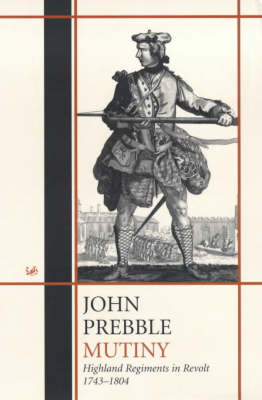Highland soldiers were Britain's first colonial levies. first raised to police their own hills, then expended in imperial wars. The Gaelic people of the 18th century, three percent only of the population none the less supplied the Crown with sixty-five regiments. Contrary to romatic belief, the Higlander was rarely a willing soldier, his songs lament the day he put on the red coat. He was often recruited by threat, sold by the chiefs he trusted. Promises made to him were cynically broken. His pride was outraged by the lash, by contempt for his fierce attachment to his language and his dress. The family he hoped to protect by enlistment was frequently evicted in his absence and replaced by sheep. Mutinies were thus inevitable. This is the first account of them, much of it in the words of the soliders and their officers. It begins with the noble revolt of the Black Watch at Finchley in 1743 and ends withthe mutiny of the starving Fencibles on Glasgow Green in 1804.
It is a subject that has been curiously overlooked by historians, John Prebble properly sees it as essential to an understanding of the destruction of the Highland clans, the story of which he began Culloden, continued in The Highland Clearances.
- ISBN10 0712667180
- ISBN13 9780712667180
- Publish Date 5 April 2001 (first published 20 October 1975)
- Publish Status Out of Print
- Out of Print 10 August 2021
- Publish Country GB
- Publisher Vintage Publishing
- Imprint Pimlico
- Format Paperback (UK Trade)
- Pages 544
- Language English
